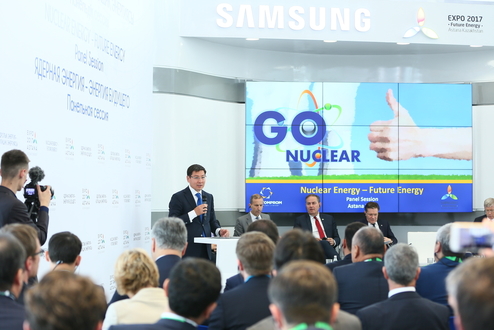In the framework of the International Exhibition Astana EXPO-2017 NAC Kazatomprom JSC and the world nuclear leaders Cameco Corporation, Uranium One Inc., CGN and AREVA signed the memorandums in the pavilion The World of Nuclear Energy.
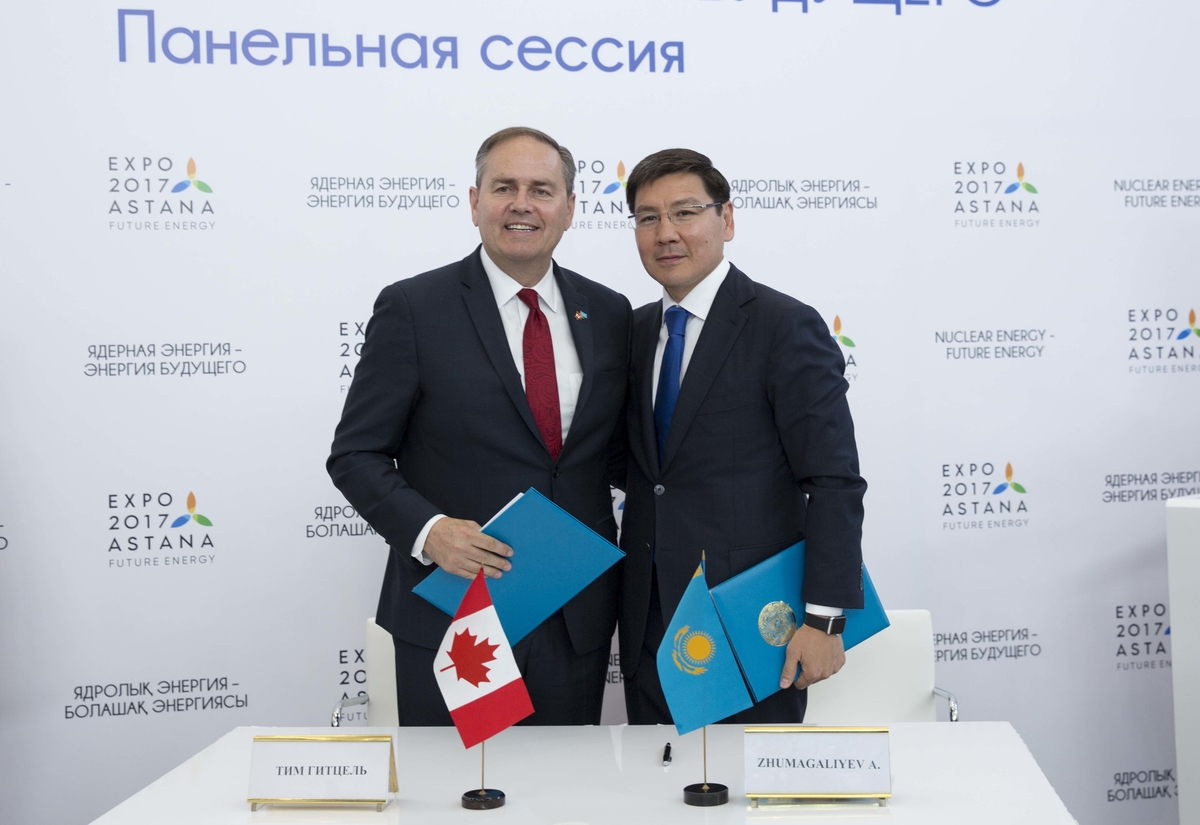
All four documents determine the opportunities for cooperation on implementing in Kazatomprom the tasks outlined in the Message of the RoK President N.A. Nazarbayev "Third modernization of Kazakhstan: global competitiveness" and within the framework of the state program "Digital Kazakhstan". The parties intend to cooperate in the field of automation, digitization and robotics at joint ventures; in particular, to develop the Big Data projects, IoT, additive technologies, 3D modeling and cloud technologies. In addition, the memorandums provide for joint workshops, forums and internships for sharing experiences.
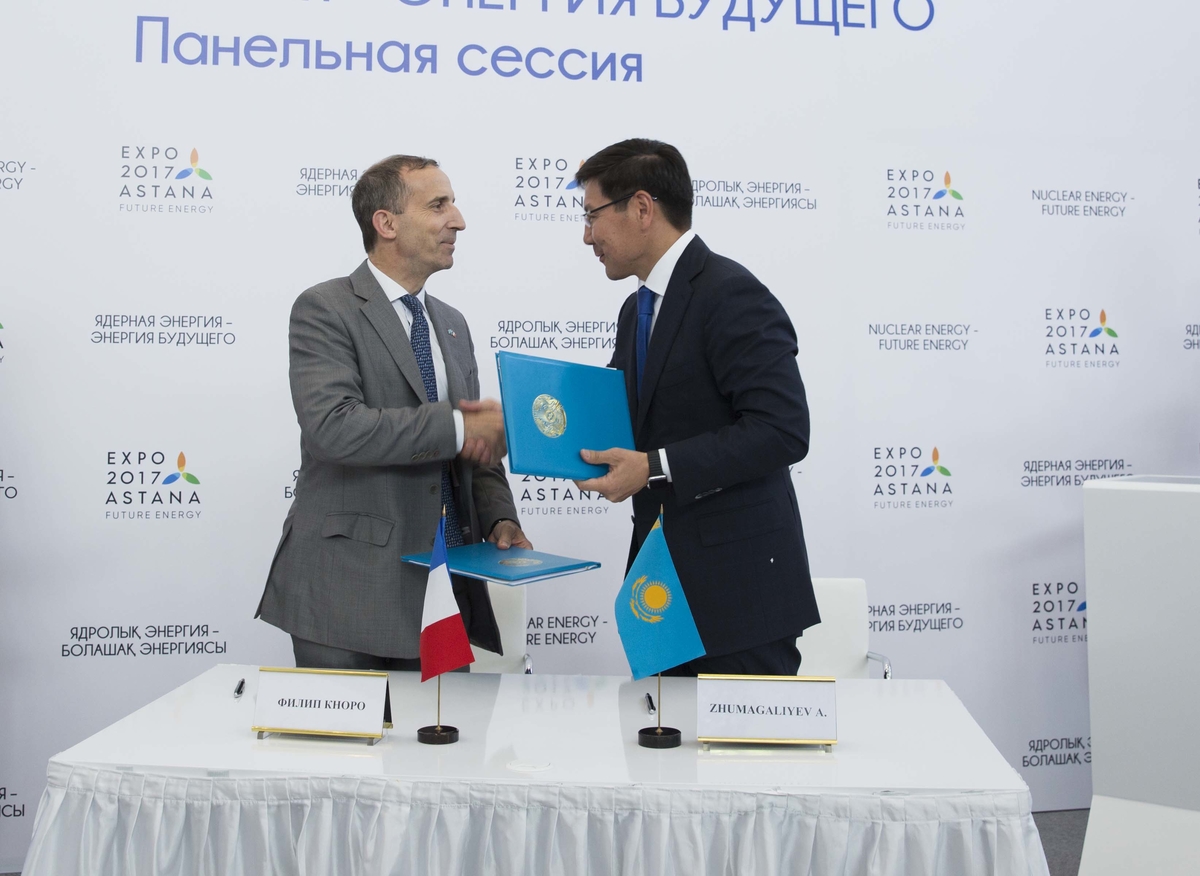
"In his Message the Head of State said that it is necessary for the industry and production to switch to digitalization, and today's memorandums are practically the fulfillment of those instructions. Therefore, all our joint ventures will switch to digitalization, will use robotic elements and organize work through the analysis of Big data”, said Askar Zhumagaliyev, Chairman of the Management Board of Kazatomprom.
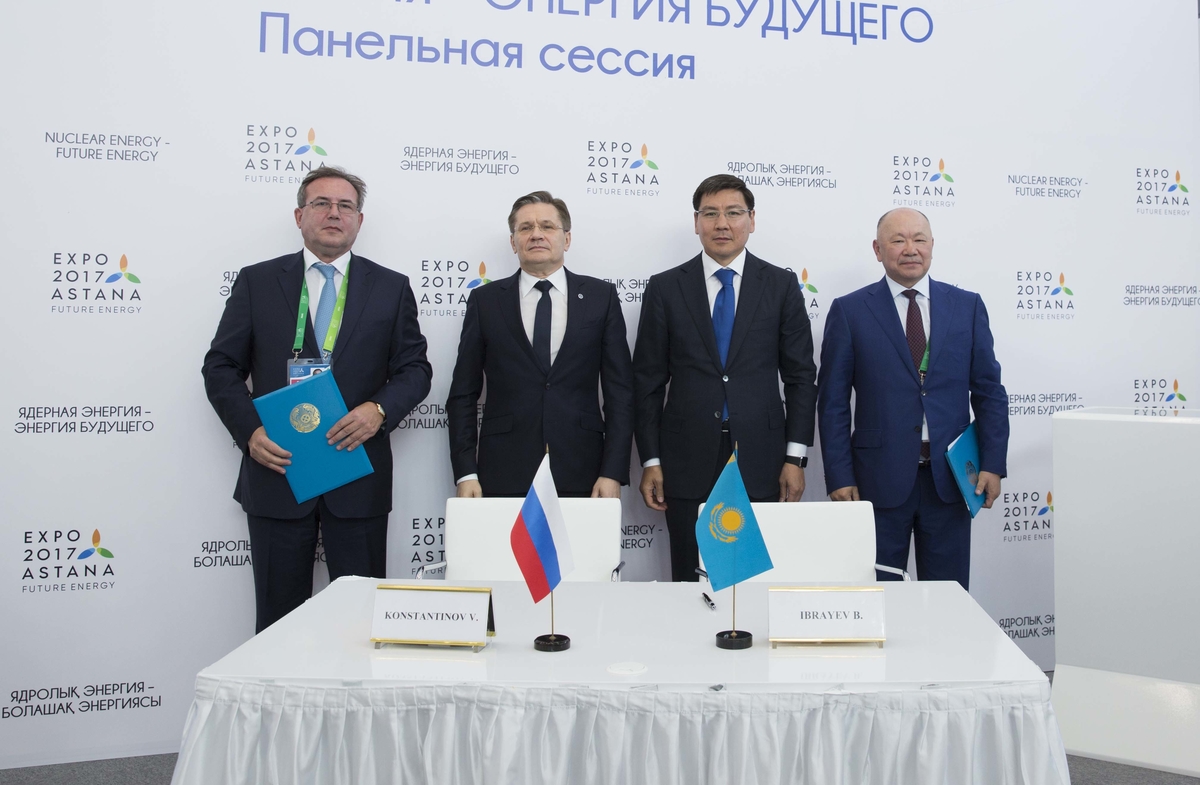
At present, the National Atomic Company is actively working to implement the concept of "Industry 4.0". In particular, Kazatomprom is automating the main directions of uranium production. The projects launched are Digital Mine, ERP (Enterprise Resource Planning), Integrated Planning System, Situation Center, which are the platform for "Industry 4.0".
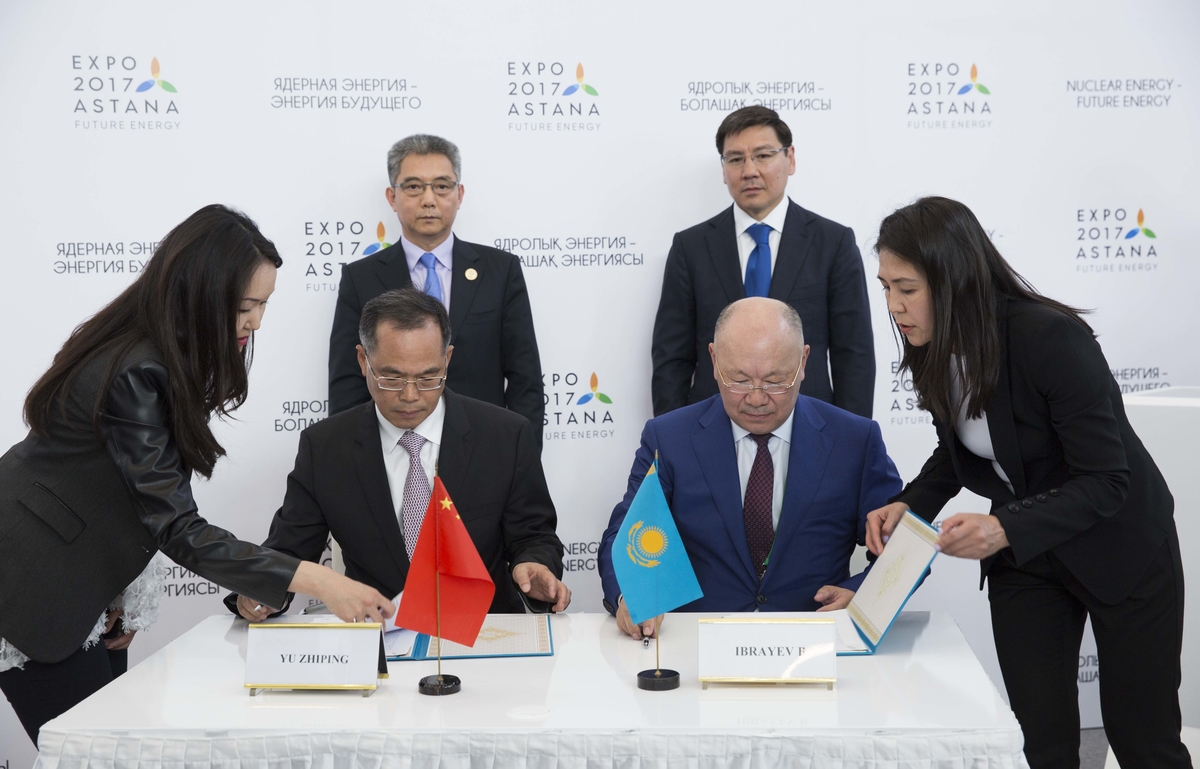
The process of robotization of the finished products filling line is underway at the subsidiary enterprise Kazatomprom-SaUran. Filling, weighing and shipping of the uranium product will be performed not by workers, but by a robotic complex.
One of the fundamental components of "Industry 4.0" is the Internet of things (the principle of interaction of electronic devices without human intervention). All actual production figures at the company's head office will be provided through multiple sensors on the equipment. This will provide reliable data and ensure the independence of processes, excluding the human factor at production. Production sites will be able to interact with each other, form orders, update parameters and adjust standards.

